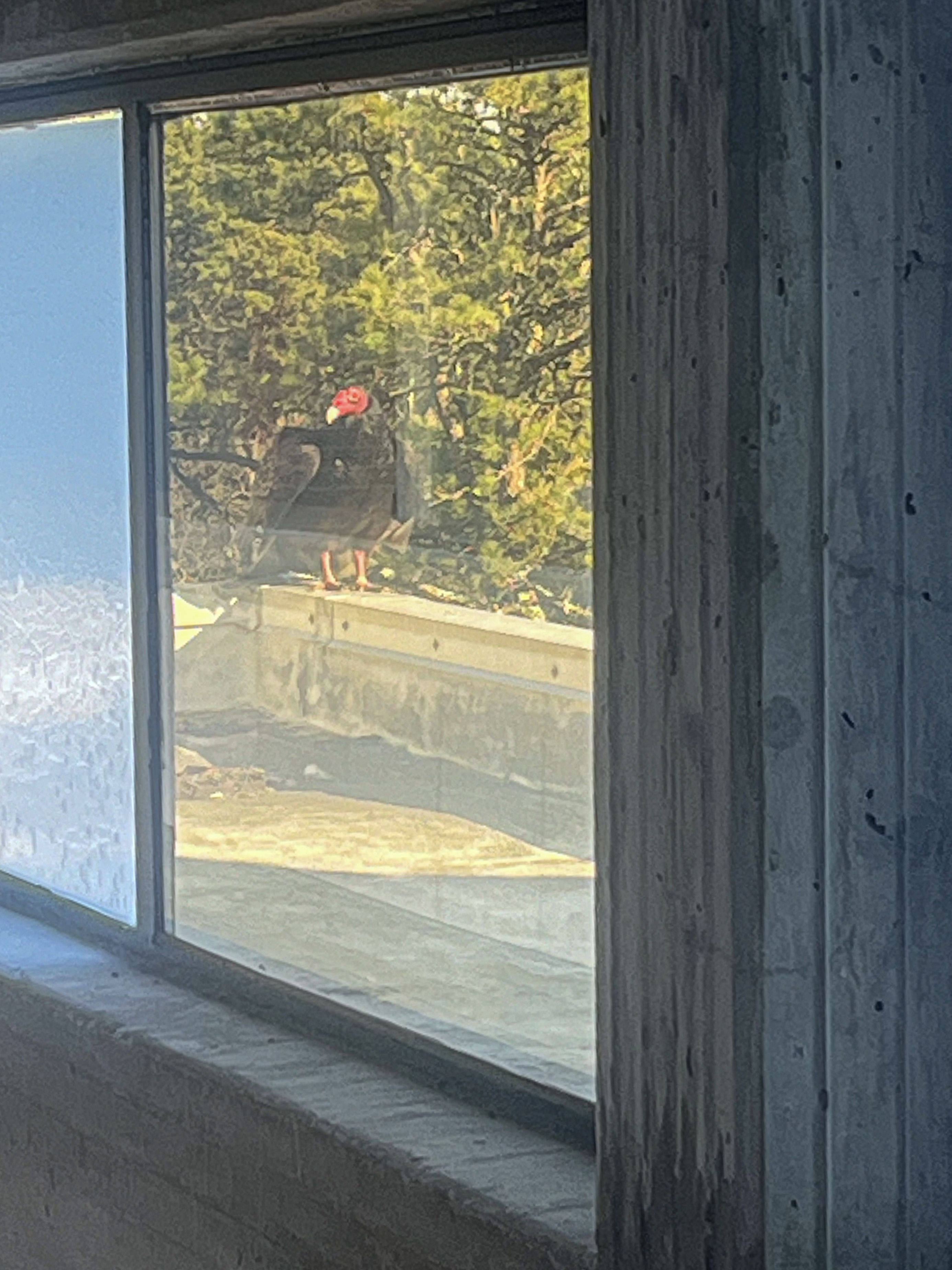Campus Critter Spotlight: Turkey Vulture
by Jordyn E Pimental
Any student at Cape Cod Community College whose favorite study spot is the third floor of the Wilkens Library can tell you a little bit about the turkey vultures. Although usually for “Campus Critter” I delve somewhere within the top ten birds that populate in and around Cape Cod Community College (in no particular order), for this week's column I decided to embark on a fun little exploration into these interesting raptors despite them being below many common birds and waterfowl ranking at number 46 on the list of most common bird species in West Barnstable during this time of year by Merlin Bird ID. This Campus resident is known to many for making the Wilkins Library its throne.
 One of the iconic vultures atop the library. (Jordyn E Pimental)
One of the iconic vultures atop the library. (Jordyn E Pimental)
Diet
Possessing dark bodies and distinctive red faces with ivory-hooked beaks for piercing carrion, you may have an idea of the turkey vulture’s diet. Carrion being the rotting flesh of a deceased animal, it is very notably what these birds' diets entirely consist of. According to the American Bird Conservancy, turkey vultures will only eat other things, such as live animals or plants, when they absolutely have to. It is because of this diet that they prefer open areas, anywhere high up with a wide view of their surroundings to scout for a potential next meal- it’s no wonder why they have taken such a liking to the library.
Atypical Nesting
Aside from our campus, there are actually many places where one can find turkey vultures as they reside in nearly all 50 states. These birds are fairly unique as the ABC informs that they do not build nests however a female will simply lay her eggs somewhere dark. Opposed to a traditional bird nest, they call hollowed-out trees or logs, rocky areas, or even atop abandoned buildings and old cars home. Turkey vultures are a prime example of how one’s trash can be another's treasure.
 The view of a vulture from the library. (Jordyn E Pimental
The view of a vulture from the library. (Jordyn E Pimental
Signature Sounds
When researching for this week’s column, I was so curious to know what call a turkey vulture makes as in all of my bird-watching endeavors I had yet to hear one. I was shocked to learn from the ABC that these birds don’t necessarily have a “call” and are known to make different noises from your usual bird, such as hissing or wheezing.
The American Bird Conservancy reports that Turkey Vultures are at risk, due to habitat loss and hunting. Existing in suburban areas can bring many dangers for these birds. Continue environmentally conscious actions and make the most sustainable choices you can to help our campus friend, the turkey vultures, and other threatened species.
 The author Jordyn E Pimental. (Sydney Pimental)
The author Jordyn E Pimental. (Sydney Pimental)
| NOTE FROM THE WRITER: Thank you so much for reading! To suggest a species(of any kind of animal) that you’ve spotted around campus to be reported on in the future feel free to send an email to [email protected]|
Categories: Featured, Arts & Entertainment